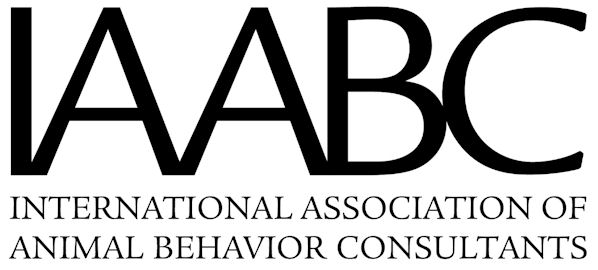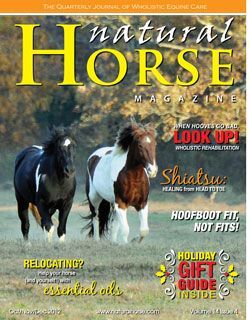Excerpt from article by Dr. Melyni Worth, Diet Recommendations for Equine Cushings and Cushings-Like-Syndrome, AKA Insulin Resistance
PLEASE NOTE: [notes in brackets and italics mine for references]
Dietary (non-drug) supplements that have some use include:
Chromium: This is a mineral that has also been shown to enhance glucose clearance by assisting insulin. Therefore, giving extra Chromium can be helpful. Chromium can be supplied as the proteinate (Chromium Piccolinate) or as Chromium- enriched yeast. The Chromium Piccolinate is the only legal form available to USA manufacturers. Equine nutritionists do not currently know the exact daily requirements for horses. All the amounts currently used (7-14 mg per day) are either based on the limited research work done in swine, or simply guesswork.
[Equine-SAFE FOODS RICH IN CHROMIUM: its been noted that diets high in processed grains will actually decrease body’s ability to absorb Chromium. Processing destroys the natural chromium source of the original plant. On the other hand, some whole grains can be a good source for chromium i.e. The germ and bran of whole grains are rich in Chromium. Alternately, processed sugar beet, etc (think Beet Pulp for horses) lack sufficient levels of chromium as the processing removes most fo the chromium that naturally occurs in the plants. Vitamin C (ascorbic acid) increases the absorption of Chromium in the body.
Good sources of Chromium include Romaine Lettuce, Brewer’s Yeast, Whole grains, Bran, sweet potato/yams. Beer accumulates chromium during fermentation so the old farmer’s addition of ale or beer to the horses’ diets may also be pertinent.]
Magnesium: This is another mineral which has the effect of relaxing the small arteriols and preserving peripheral blood circulation. Also, in humans, it has an effect of reducing C-reactive protein (an inflammatory marker). Therefore, giving extra Magnesium will help peripheral circulation, and reduce low chronic inflammation.
[Equine-SAFE FOODS RICH IN MAGNESIUM: Green Leafy Vegetables such as Spinach, and Broccoli, Peanuts, Cashews, Wheat Bran, Brazil nuts, Almonds, Plantain (raw), Pumpkin and Squash seeds, Whole Grains, Blackstrap Molasses, Celery Seed, Dill Weed, Savory, Marjoram, Sage, Basil, Fennel Seed.]
Increase the horse’s Magnesium intake up to 2 grams per 100 pounds of bodyweight per day (i.e. 20 grams of Magnesium for a 1,000 pound horse). Ideally, in conjunction with this, increase the Chromium as well, to 7- 14 mg per day for the 1,000 pound horse. You will need to adjust these numbers accordingly for significantly different body weights. Most importantly, the Magnesium intake is the key component. I prefer to use Quiessence™, which is a supplement that contains Magnesium as a chelate and Chromium as a proteinate. If you cannot get Quiessence™, then use Magnesium Oxide or Citrate as a substitute. You can get Chromium supplements at the drugstore in human form or from your veterinarian.
Keep the horse on the high Magnesium and Chromium until you get a reduction in the thickness and size of the fat deposits on the neck and shoulders. This normally takes 4-6 weeks or more. In about 70% of the horses, you also see an improvement in length of stride and soundness. However, not all horses respond the same, and to the same degree. Once you get the horse to a more normal appearance, then you can drop the Magnesium levels to 10 grams per day, UNLESS the neck starts to build up again. If the neck does enlarge again, increase the Magnesium intake back to 20 grams per day. Use the neck thickness to guide you in adjusting the Magnesium intake.
Herbals: There are several herbs, which have positive effects on glucose clearance and/or on pituitary function. None of these have any scientific evidence in horses, though some of them have a few studies in humans and lab animals.
[Equine-HERBS for Insulin Resistance: Chastetree Berry (Agnus castus), Kelp, Ginseng, Fenugreek, Psyllium, Cinnamon, Aloe, Bitter Melon, Milk Thistle, Holy Basil, Flaxseed, Borage,.]
Chastetree Berry has a reputation for being useful for pituitary function.
Alpha Lipoic Acid (ALA) is used an as anti-oxidant, and has a reputation for assisting glucose clearance in humans.
Vanadium has been found in human research to stimulate glucose clearance.
Zinc is used as an anti-oxidant, and is closely involved with Selenium metabolism. Human diabetics have depleted Zinc supplies – thus it may be useful to supplement IR horses with this mineral as well.
Bitter Melon (Momordia Charantia), Fenugreek, Jiagoluan (Gynostemma), and Cinnamon are all thought to help with the regulation of blood sugar in humans and can be found in different human supplements on the market.
I recommend Cush-Alleve™, which has some of the above ingredients, but there are also several other equine products available with different combinations of these herbs.
SUMMARY
In summary, increase the horse’s Magnesium intake, if possible in conjunction with Chromium, and reduce the level of simple carbohydrates in the diet. Use a good quality protein/vitamin/mineral supplement, ideally one that also supplies essential fatty acids and essential amino-acids. If this does not provide enough benefit, then try some of the herbal preparations, such as those which contain Chastetree Berry and/or some of the other herbs mentioned above. Melyni Worth, Ph.D., www.FoxdenEquine.com
———————————————————————————
REFERENCES for added [NOTES]:
Hypoglycemic herbs and their action mechanisms
Hongxiang Hui,1,3 George Tang,2 and Vay Liang W Go3
1Department of Medicine, Veterans Affairs Greater Los Angeles Healthcare System, Los Angeles, 90073, USA
2Division of Medical Genetics, Cedar-Sinai Medical Center, Los Angeles, California 90048, USA
3UCLA Center for Excellence in Pancreatic Disease, David Geffen School of Medicine, University of California, Los Angeles, California 90095, USA
www.botanicalmedicine.org/Tapes/04sw/04sw04.htm
——————————————————
www.everydayhealth.com/…/botanicals-and-herbs-for-type–2–diabetes.aspx
http://www.umm.edu/altmed/articles/magnesium-000313.htm
http://www.algaecal.com/magnesium/magnesium-rich-foods.html
www.holistichorse.com/…/feeding-the-insulin-resistant-horse.html











2 thoughts on “Diet for the IR:Metabolic Horse”